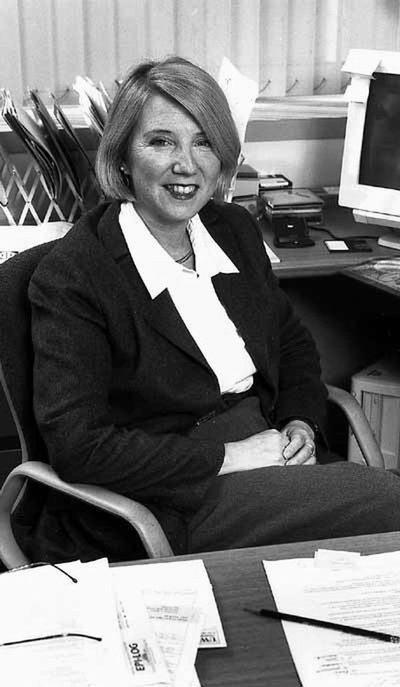December 13, 2001
Public Health professor joins international Fulbright program
A UW public health professor is one of 30 people from around the world who make up the first group of scholars for the Fulbright New Century Scholars Program, a U.S. State Department initiative announced this fall. The program will gather leading researchers and professionals each year for three years to provide a forum for international, interdisciplinary collaboration.
For 2001-2002, the focus is “Challenges of Health in a Borderless World.” Only 12 of the scholars named are from the United States; the other 18 represent that many other nations.
The UW participant is Dr. Ann Marie Kimball, a widely recognized expert in international health. She is a professor of epidemiology and of health services in the School of Public Health and Community Medicine, and also holds an adjunct appointment in the School of Medicine.
Kimball attended the first meeting of the New Century Scholars, held at the Rockefeller Center in Bellagio, Italy, at the end of October.
“The three days of discussions focused on the group contribution beyond the individual research each of us will do,” she said. “In addition we formed affinity groups to work in thematic areas based on our individual projects.”
As part of the program, Kimball plans to spend three months next summer in Geneva, Switzerland, working with the World Health Organization and the World Trade Organization on disease surveillance and containment, particularly in Pacific Asia. One focus of her efforts will be the current WHO revisions to existing International Health Regulations, which historically have guided trade-related health protection from contagious diseases.
In November, the 30 New Century Scholars will gather in the Washington, D.C. area for a two-week session.
Dr. Ilona Kickbusch, director of the Division of Global Health in the Department of Epidemiology and Public Health at Yale University School of Medicine, serves as the leader for this year’s group of New Century Scholars. She noted that the program will build a greater understanding between academic and professional leaders from many countries. “The networks they build, the community they establish, will have value and impact far beyond the period of the program.”
Kimball acknowledged that interdisciplinary work is more difficult and more time-intensive than pursuing projects in one field.
“I really believe that this is a time in global history when we need to work across these barriers,” she said, noting that medical, economic and social interests are being focused on world health issues. “I’m very excited and encouraged by the resources now available, including the commitment of the Gates Foundation to supporting the interdisciplinary work of the Global Commission on Macroeconomics and Health, which will have such a large impact on how we work in global health.”
Kimball is a 1976 graduate of the UW School of Medicine and earned a master’s degree in public health, also from the UW, in 1981. She has spent years working in Africa and the Middle East on population health. She served as regional advisor for HIV/AIDS with the Pan American Health Organization of WHO, as director of Washington State’s AIDS Program, and as chair of the U.S. National Alliance of State and Territorial AIDS Directors.
She re-joined the faculty of the School of Public Health and Community Medicine in 1993. She directs the M.P.H. degree program in the Department of Health Services, the Asia Pacific Economic Cooperation (APEC) Emerging Infections Network, and the Fogarty International Scholars program in health informatics. She is a member of the UW’s International Faculty Council.



